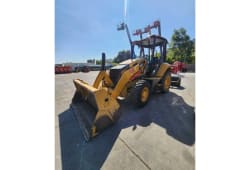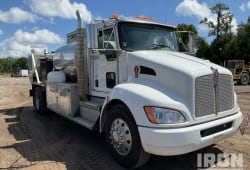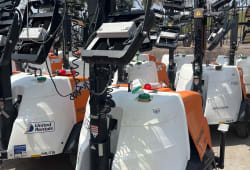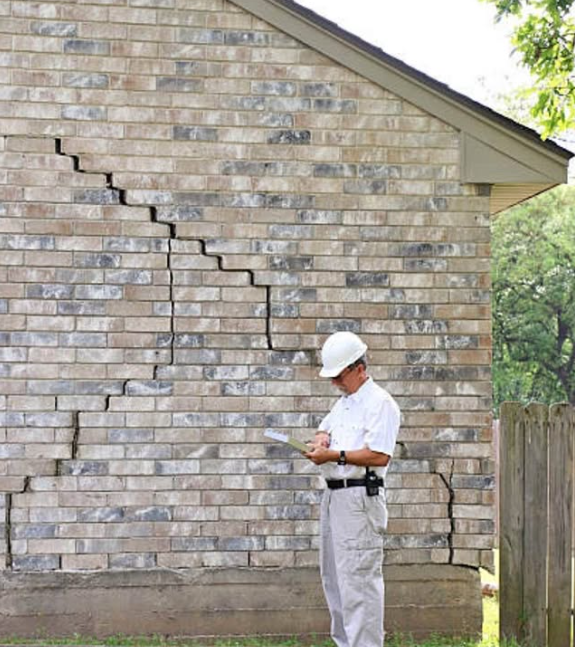How to Find the Best Used Excavators For Sale
8 Min read
)
January 20, 2022
If you are in the market for an excavator, the most economical choice would be to buy a used piece of machinery. Purchasing a used excavator is a great idea, but knowing how to find the best-used excavators is crucial to ensure that the equipment you receive is in good condition and going to last you -- and avoid costly downtime and repairs. For first-time buyers of mobile excavators, it can be difficult to know how to navigate this process. In this article, we will teach you how to determine the value of a used excavator, to ensure that you are shopping as a well-informed customer.
Research First
When buying new construction equipment, the most important step is to do your research first before shopping or making any decisions. Take the time to gather the most up-to-date prices for the equipment you need for construction projects and factor that cost into your budget to avoid sticker shock when it comes time to go out shopping for the machine you need.
Once you've settled on a budget, do some digging into which models suit your needs, without exhausting your budget and resources. If your budget includes very little wiggle room, you may want to check out the price of older models rather than newer options.When it comes to purchasing a used excavator, knowledge is power. Thorough research is imperative to becoming an empowered, well-informed buyer.
Buying Options
Thanks to today's technology, there are a variety of buying options for new and used excavators now. While many options for hydraulic excavators exist, they are not all created equally. It is important to consider a few things when deciding which buying option is best suited for you.
Online Marketplace
The easiest, most reliable way to find the best-used excavators for sale is to utilize an online marketplace that is dedicated to purchasing used machinery from reputable sellers (across private, rental, dealer, and large fleets). allows you to browse for equipment or create a custom search where we help you identify the exact equipment you're looking for and includes the specifications of each piece including their price, location, and current condition. We pull in more data to make sure that both the seller and the buyer have an amazing experience and that everyone leaves happy.
Dealership
Another option to choose from is purchasing a used excavator from a certified dealership. Many dealerships have a fleet of rental equipment from which you can buy a used piece of machinery. The primary advantages of this option include:
A large pool of inventory to choose from
Service and maintenance history for each piece of equipment
Customer service and sales support
Private Seller
Buying a used excavator from a private seller can be a bit riskier if you don't know them personally, but you can find some great deals out there if you know where and how to find the right seller. It is important to thoroughly vet your seller, and it is best to try to get some personal recommendations from friends, family, or colleagues first. At the end of the day, most private sellers are just looking to get rid of their equipment, and aren't particularly concerned about quality or long-term functionality. If you do choose to go through a private seller, you should proceed with caution.
Auctions
Auctions are another place to find used excavators, although, with such a huge inventory and high demand for these machines, you may find yourself waiting quite a while for their inventory to include or sell a piece of equipment that is right for you and the quality of the inspections can leave something to be desired. However, some people still enjoy this option.
Examine the Equipment
When it comes to buying a used excavator, it is important to carefully examine the equipment to ensure that the machine is in good condition. This will also help guarantee that you are getting the most value for your money.
Even if you are purchasing from a trustworthy seller, sometimes imperfections are overlooked and should always be checked out by a new set of eyes.That's why we take care of this for the buyer so they don't have to be on-site and can complete the entire buying process from anywhere. We complete high-quality, in-depth 3rd party inspections so that you don't have to be there to know you're getting what you expect.Here are some of the key points to inspect when looking over a used excavator:
Slew Ring
To avoid costly repairs in the future, it is important to check specific areas on the equipment that are often the most expensive to repair or replace. The slew ring in a hydraulic excavator is one of those items, so be sure to inspect this area for damage before making a purchase. If you do find damage to the slew ring, this could be an indication of improper maintenance during the machine's working hours, which could mean that other parts of heavy equipment were not maintained well either.
Boom, Stick, and Bucket
Pay close attention to the pins and bearings on the equipment, particularly in the connection points of the stick and bucket attachments. If you find that there is any movement in the connection points, be aware that this could lead to malfunctioning equipment.
Dents or Cracks
While it is not uncommon to find signs of wear and tear on used pieces of machinery, there are a few areas that should not have any cracks or dents. The boom and stick should be thoroughly inspected, especially the connection points that have been welded. If you find any signs of damage, be aware that you may need to replace the boom or the sticshortlyre.
In addition, it is important to check for damage to the wheels or undercarriage of the excavator. If you find any dents, cracks, or damage in this area, it may be a sign that the excavator was used incorrectly, or it could indicate that the machine was in an accident. These exterior defects could be a sign of internal damage to the mini excavator and warrant a more thorough inspection.
Leaks
A high-quality, used excavator should not have any leaks in the engine or hydraulic pump compartment. Inspect the lines, cylinders, and hoses for signs of leaks before purchasing a machine.
Hours Meter
To confirm the hours of operation on a used excavator, take a look at the control pedals and examine them for signs of excessive wear and tear. This could be evidence of a broken meter or one that has been doctored and is not displaying the correct number of hours logged on the excavator. I notice that people are searching for used excavators for sale near me so you can get an excavator for sale for under $10,000. Looking for a used excavator for sale under $10,000? Get an asset appraisal from our team of experts and buy with ironclad assurance from our buying format.
Used Excavator for Sale - Boom and Bucket
Discover a wide selection of heavy equipment with our offerings of new and used excavators for sale. Whether you're tackling construction projects or landscaping tasks, we have the perfect machinery to meet your needs. Explore our inventory, which includes mini excavators designed for smaller projects and crawler excavators known for their stability on challenging terrains.
Navigate through our listings and utilize features such as watching and comparing to make informed decisions. Our huge inventory comprises wheeled excavators and mobile excavators, providing options for projects with specific mobility requirements. Each excavator comes equipped with a digging bucket tailored for efficient excavation tasks.
Engage in a transparent buying process with our online auction platform and buying format that includes ironclad assurance. Our saved search feature ensures you stay updated on items that match your criteria. Benefit from a private buying experience, complete with detailed notes comparison and an ironclad assurance meter to guarantee the quality of your purchase.
Whether you're looking to buy or sell, our platform simplifies the process, offering a seamless experience for heavy equipment transactions. Visit us to start your search and enjoy a hassle-free journey in the world of excavators.














